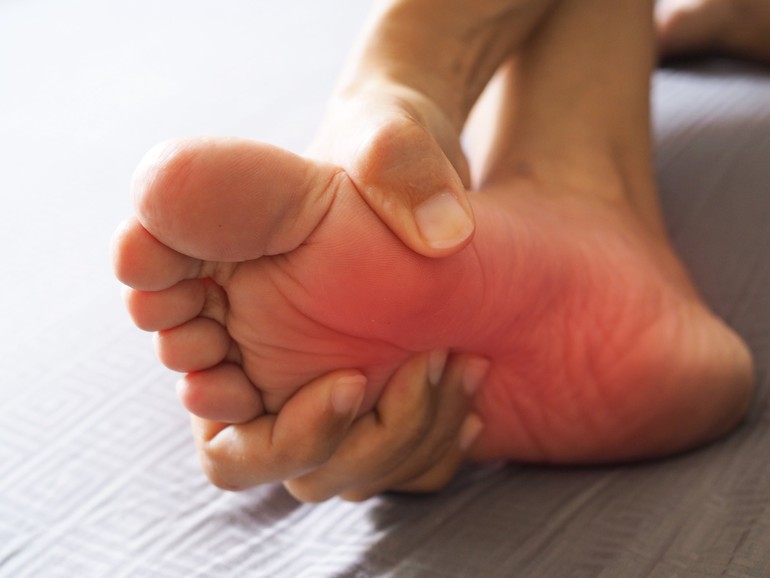The Centers for Advanced Orthopaedics is redefining the way musculoskeletal care is delivered across the region with locations throughout Maryland, DC, Virginia and Pennsylvania.
What Is A Tarsal Coalition And How Is It Treated?

A tarsal coalition involves the abnormal connection of two or more bones in your foot. These abnormally connected tarsal bones are located towards the back of your foot and can lead to a severe or rigid flatfoot. In today’s blog, we take a closer look at why the condition develops, how it is diagnosed and how a foot specialist can help treat the coalition.
Causes And Symptoms Of A Tarsal Coalition
A tarsal coalition is typically a condition that is present at birth as a result of a gene mutation that disrupts normal bone development in the foot. The condition can also develop as a result of an injury or infection, but these causes are much rarer. The most common result is due to a genetic condition.
While the condition may be present at birth, symptoms don’t usually set in until the individual is a lot older. Many begin experiencing symptoms during adolescence or their teen years when the bones in their feet are maturing. Symptoms that may suggest your child or teen is dealing with a tarsal coalition include:
- Pain
- Stiffness
- Discomfort during activity
- A rigid flat foot
- Recurrent ankle sprains
The most common site for a tarsal coalition to form is between the calcaneus and navicular bones or between the talus and calcaneus bones, but it can develop in other areas as well. If you suspect that your child is dealing with a tarsal coalition, set up an appointment with a foot specialist to have it examined so that it can be appropriately treated.
Diagnosing And Treating Tarsal Tunnel Coalition
A tarsal tunnel coalition is more common than you may expect, affecting about 1 in 100 people, and in half of those cases, both feet are affected. To determine if you or your child are dealing with a tarsal tunnel coalition, the foot specialist will begin by asking about your symptoms and conducting a physical exam. They may also have you perform some actions like flexing your foot, standing or walking to see how your arch responds to some of these movements. They can likely tell a lot about your feet through these examinations, but in order to get an accurate diagnosis, they’ll want to conduct imaging tests. An x-ray provides a clear look at the bones in the foot, and most coalitions can be seen on an x-ray. A CT scan or MRI may also provide a more detailed look in the foot, but oftentimes a simple x-ray can do the trick.
If you are diagnosed with a tarsal coalition, the next step will be to discuss your treatment options. Sometimes symptoms can be managed with conservative treatment, which will include:
- Rest - Rest or high-impact activity avoidance for 2-6 weeks can reduce stress on the tarsal bones and lead to pain relief.
- Orthotic inserts - Orthotic inserts that change how pressure is dispersed on your foot can also prove helpful in preventing and alleviating symptoms.
- Walking Boot/Cast - A walking boot or cast can provide some additional protection for the foot area for an extended period so that strain on the bone is reduced.
- Steroid Injections - A corticosteroid injection can help alleviate discomfort while some of the other treatments listed above are pursued.
If these treatments fail to provide enough symptoms or functional improvement, surgery may be recommended. Smaller coalitions may be effectively treated with a minimally invasive resection procedure, while more larger and severe coalitions may respond best to a fusion procedure. Resectioning is the most common surgical procedure, and it tends to produce fantastic results. You’ll follow many of the previously mentioned non-surgical treatments for a number of months after surgery until enough healing has taken place for you to bear weight.
For more information about tarsal tunnel coalition or for help with another foot issue, reach out to the team at The Centers for Advanced Orthopaedics today.